Taylor Swift and Beyonce are the latest musicians to shun Donald Trump - but who else has rejected him?
Few former presidents have inspired such strong reactions from some of the biggest names in the music industry
Your support helps us to tell the story
From reproductive rights to climate change to Big Tech, The Independent is on the ground when the story is developing. Whether it's investigating the financials of Elon Musk's pro-Trump PAC or producing our latest documentary, 'The A Word', which shines a light on the American women fighting for reproductive rights, we know how important it is to parse out the facts from the messaging.
At such a critical moment in US history, we need reporters on the ground. Your donation allows us to keep sending journalists to speak to both sides of the story.
The Independent is trusted by Americans across the entire political spectrum. And unlike many other quality news outlets, we choose not to lock Americans out of our reporting and analysis with paywalls. We believe quality journalism should be available to everyone, paid for by those who can afford it.
Your support makes all the difference.Musicians and Donald Trump have a fraught relationship. From ordering him to stop playing their music to calling out his politics, some of the highest-profile artists in the world have aligned themselves against the former president, who is campaigning in the 2024 election against Democratic candidate Kamala Harris.
While several prominent singers have been calling out Trump as long ago as 1989, when he was a promoter for the Rolling Stones (Keith Richards was not a fan), his time as president prompted many more to criticise him at shows, write protest songs about him, or mock him from their social media accounts.
From his 2016 presidential campaign to his bid in the 2024 election, here’s an extensive timeline of some of the most notable moments involving Trump and the music industry.
2016
October
After months of statements expressing the Rolling Stones’ distaste at Trump using their music at his rallies, frontman Mick Jagger explains why they are unable to stop him from doing it.
“When you appear in America… if you’re in a public place like Madison Square Garden or a theatre, you can play any music you want, and you can’t be stopped,” he says.
November

Trump struggles to find artists willing to perform at his inauguration.
After a report that his representatives are looking for LBGT musicians, Elton John – who commented, when Trump used ‘Tiny Dancer’ in his campaign, “I’m not a Republican in a million years” – swiftly rules himself out. On a potential inauguration performance, he quips: “Why not ask Ted f***ing Nugent?”
December

Andrea Bocelli reportedly backs out of a performance after being approached by Trump, who is a huge fan and once booked Bocelli to perform at a private party at his Florida club in 2010, amid uproar from fans.
2017
January
With Trump’s inauguration looming ever closer, his team become increasingly desperate to book some actual “names”, following his promise of “plenty of movie and entertainment stars”.
There are plenty of artists who have said no by now, including Charlotte Church, Rebecca Ferguson, Ice T, Elton John, the Dixie Chicks, Adam Lambert, and a Bruce Springsteen tribute band. Jennifer Holliday pulls out after a backlash from her LGBT fanbase.
Enjoy unlimited access to 100 million ad-free songs and podcasts with Amazon Music
Sign up now for a 4 month free trial (3 months for non-Prime members)
Enjoy unlimited access to 100 million ad-free songs and podcasts with Amazon Music
Sign up now for a 4 month free trial (3 months for non-Prime members)
Singer and actor John Legend has a suggestion for why Trump is struggling. “Creative people tend to reject bigotry and hate,” he says. “We tend to be more liberal-minded. When we see somebody that’s preaching division and hate and bigotry, it’s unlikely that he’ll get a lot of creative people that want to be associated with him.”
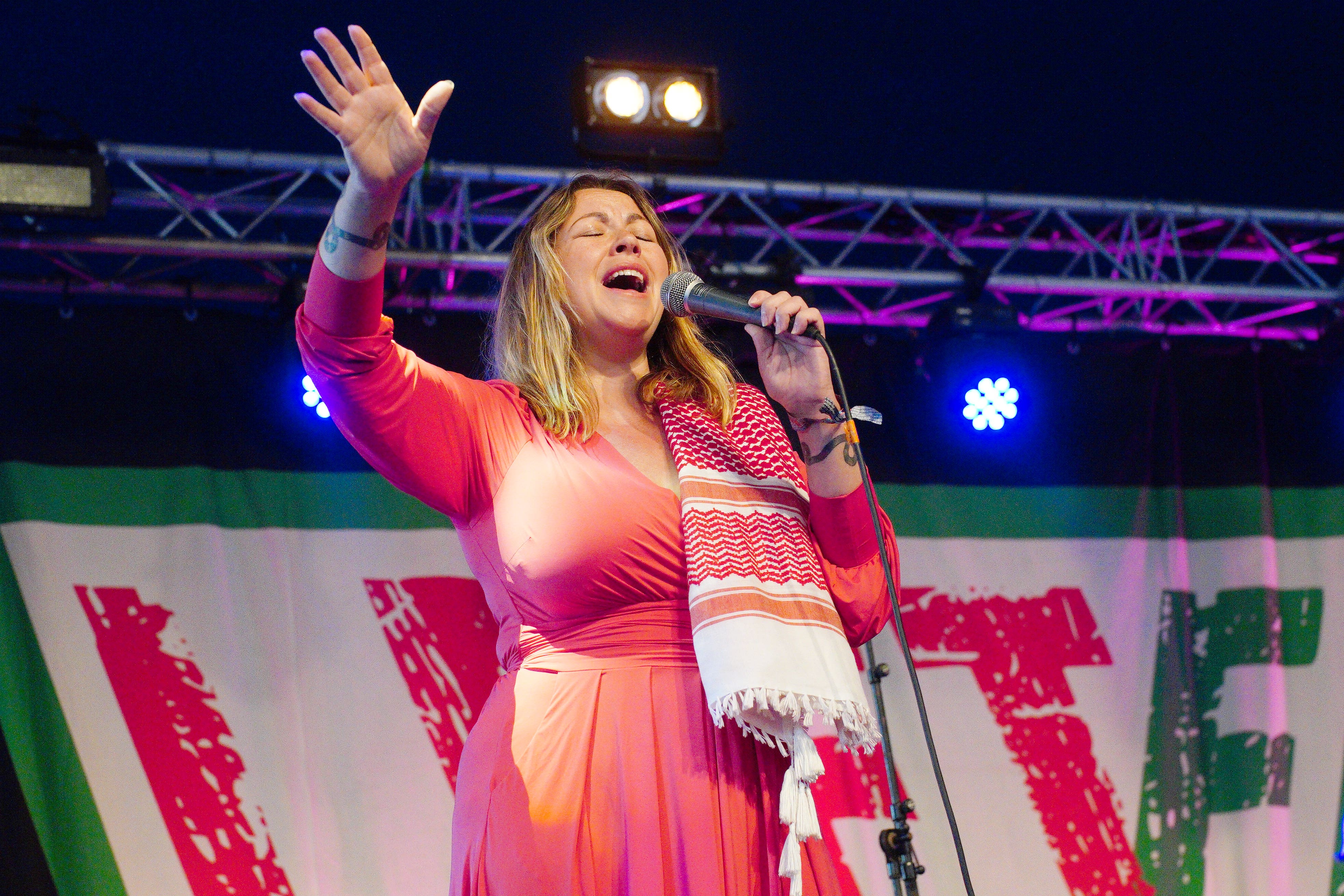
Charlotte Church is even more blunt, criticising Trump’s team for even daring to ask her: “A simple internet search would show I think you’re a tyrant,” she writes on Twitter.
Rebecca Ferguson says she will perform on the condition that she sings “Strange Fruit” – the protest poem against racism that was popularised by Billie Holliday. For some reason, Trump’s team don’t take Ferguson up on the offer.
Trump eventually manages to get the Mormon Tabernacle Choir, Jackie Evancho (an America’s Got Talent finalist), 3 Doors Down and Jon Voight to appear at the ceremony.
Nancy Sinatra responds to Trump having her father’s song “My Way” performed at the ceremony by commenting: “Just remember the first line of the song”. The “Bang Bang” singer is referring to the line: “And now, the end is near.”
By this time, several artists have begun to release protest songs against Trump including Gorillaz, who break a six-year absence with a new anti-Trump song, “Hallelujah Money”.
Lily Allen makes a playlist for Trump, which includes her own song “F*** You”, Rihanna’s track “Russian Roulette”, and Green Day’s “American Idiot”.
February
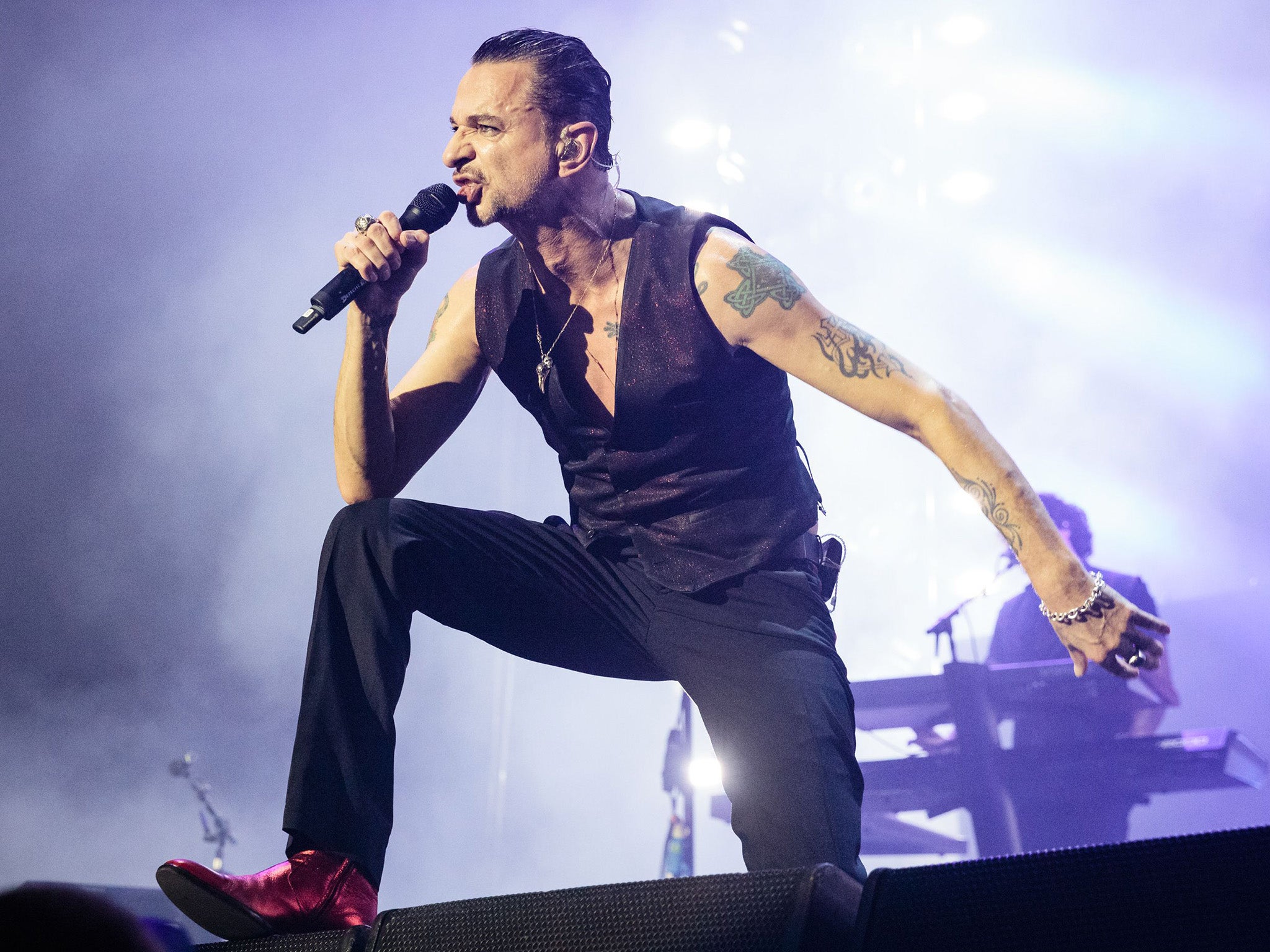
Depeche Mode return with their first new music in four years: a politically charged track titled “Where’s the Revolution” that appears to criticise the US for electing Trump as president. Singer Dave Gahan performs blistering lyrics including the line: “Who’s making your decisions? You or your religion? / Your government, your countries? You patriotic junkies.”
The 59th Grammy awards is one of the most political in the music award ceremony’s history, and features anti-Trump statements from the likes of Highly Suspect, Jennifer Lopez, Paris Jackson, Beyonce, A Tribe Called Quest and Katy Perry.
March

Snoop Dogg causes uproar with his music video for “Lavender”, which shows an actor dressed as Trump with a clown face.
At the video’s climax, the clown Trump is held at gunpoint, and Snoop pulls the trigger to reveal a red flag with the word “BANG” written on it.
The rapper says of the video: “The whole world is clownin’ around, and [the] concept is so right on point with the art direction and the reality, because if you really look at some of these mother***ers, they are clowns.”
The president’s lawyer says he is “shocked” by the video and demands an apology from Snoop.
April
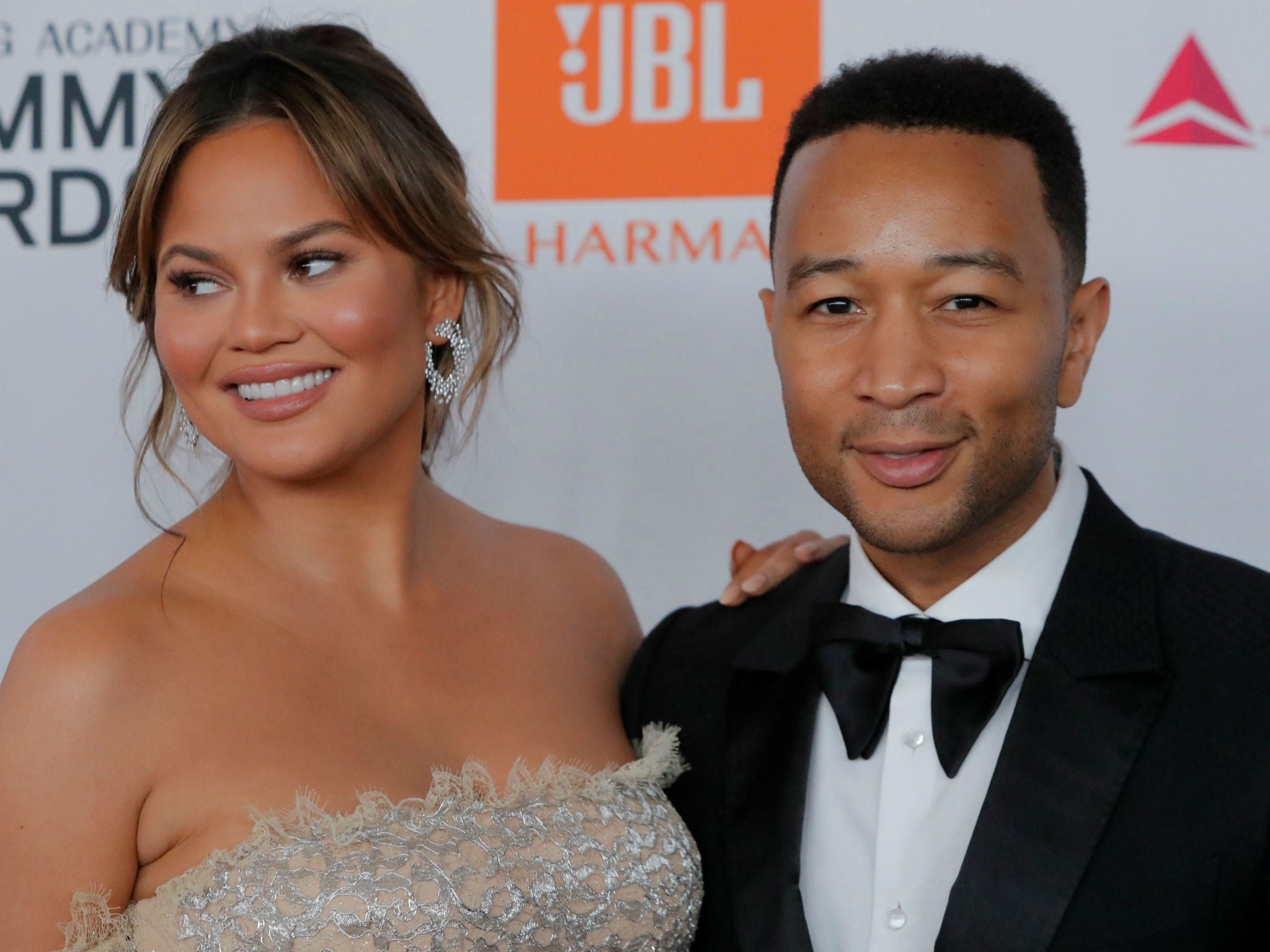
In an interview with The Independent, John Legend speaks about Trump’s election and suggests an interesting reason for why artists are less vocal about politics than they were in previous decades.
Bruce Springsteen releases a new protest song "That's What Makes Us Great" that brands Trump as a “con man”. The song includes the lyrics: “Don’t tell me a lie, and sell it as fact / I’ve been down that road before, and I ain’t going back.”
June
Rapper Nas writes an emotional open letter to Trump which says, “We all know a racist is in office.”
“Whatever president may be in office doesn’t affect my work directly,” he continues. “The way he affects people is what affects me. I observe what’s going on and that goes into my creative process. The person himself, I’m not caught up with. I don’t even have time for Trump or Pence. I don’t give a f***.”
September
John Legend argues that Trump’s attacks on other public figures is an example of psychological projection and blame-shifting.
The outspoken artist brands the US president an “embarrassment” to America and lambasts his approval rating, which has dropped to 34 per cent, as a prestigious polling site also deems him more unpopular than any other president in the history of modern polling.
October
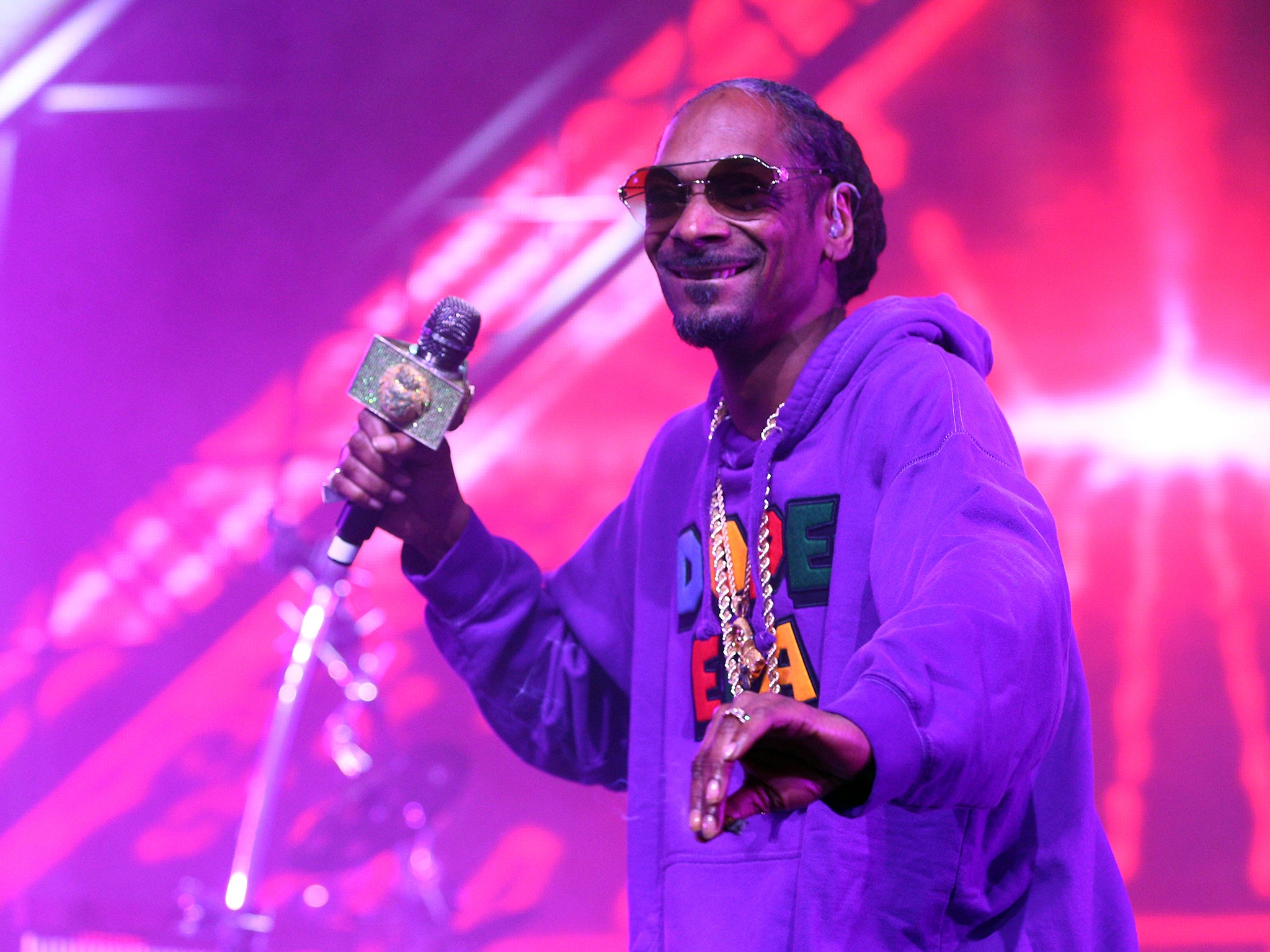
Snoop Dogg takes aim at Trump in a new track titled “Make America Crip Again”, an obvious take on Trump’s trademark campaign slogan “Make America Great Again”.
In the opening lines Snoop says: “The president says he wants to make America great again. F*** that s**t, we’re going to make America crip again.”
Macklemore leads chants of “F*** Donald Trump” at a concert in Arizona and performs his YG collaboration, “F*** Donald Trump Part 2”, which features the lyric: “How did he make it this far? How the f*** did it begin? / A Trump rally sounds like Hitler and Berlin.”
Frank Sinatra’s former manager releases a book revealing the legendary singer once told Trump to “go f*** yourself” in 1990 after being told by the former business magnate, who was opening his casino in Atlantic City, that his performance costs were “a little rich”.
December
Morrissey causes controversy in an interview with German newspaper Der Spiegel with his comments on Trump. Asked whether he would push a button that would cause the president to “drop dead”, he answers: “I would, for the safety of the human race… I think he’s a terrible, terrible scourge.” The former Smiths singer then attempts to deny making the remark, which prompts Der Spiegel to reveal the full audio of the interview, revealing he did in fact make the comment.
2018
January
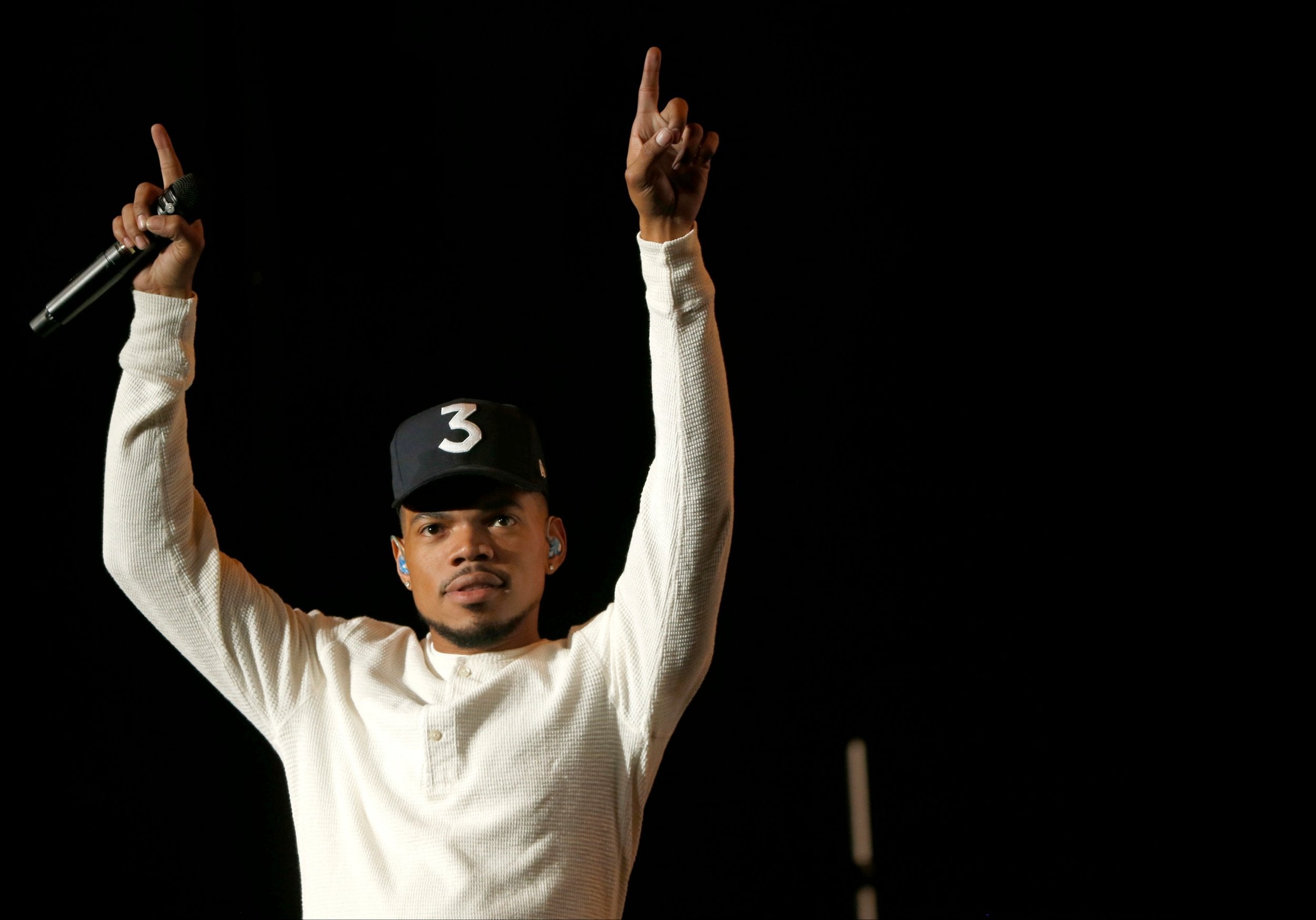
Chance the Rapper is among the musicians boycotting Trump’s first State of the Union address.
February

Hillary Clinton appears alongside Cardi B, DJ Khaled, Snoop Dogg, Cher and John Legend in a comedy skit broadcast at the Grammy Awards.
The former presidential candidate and Secretary of State performs a dramatic reading of the book Fire & Fury, in order to win next year’s award for Best Spoken Word Album.
March
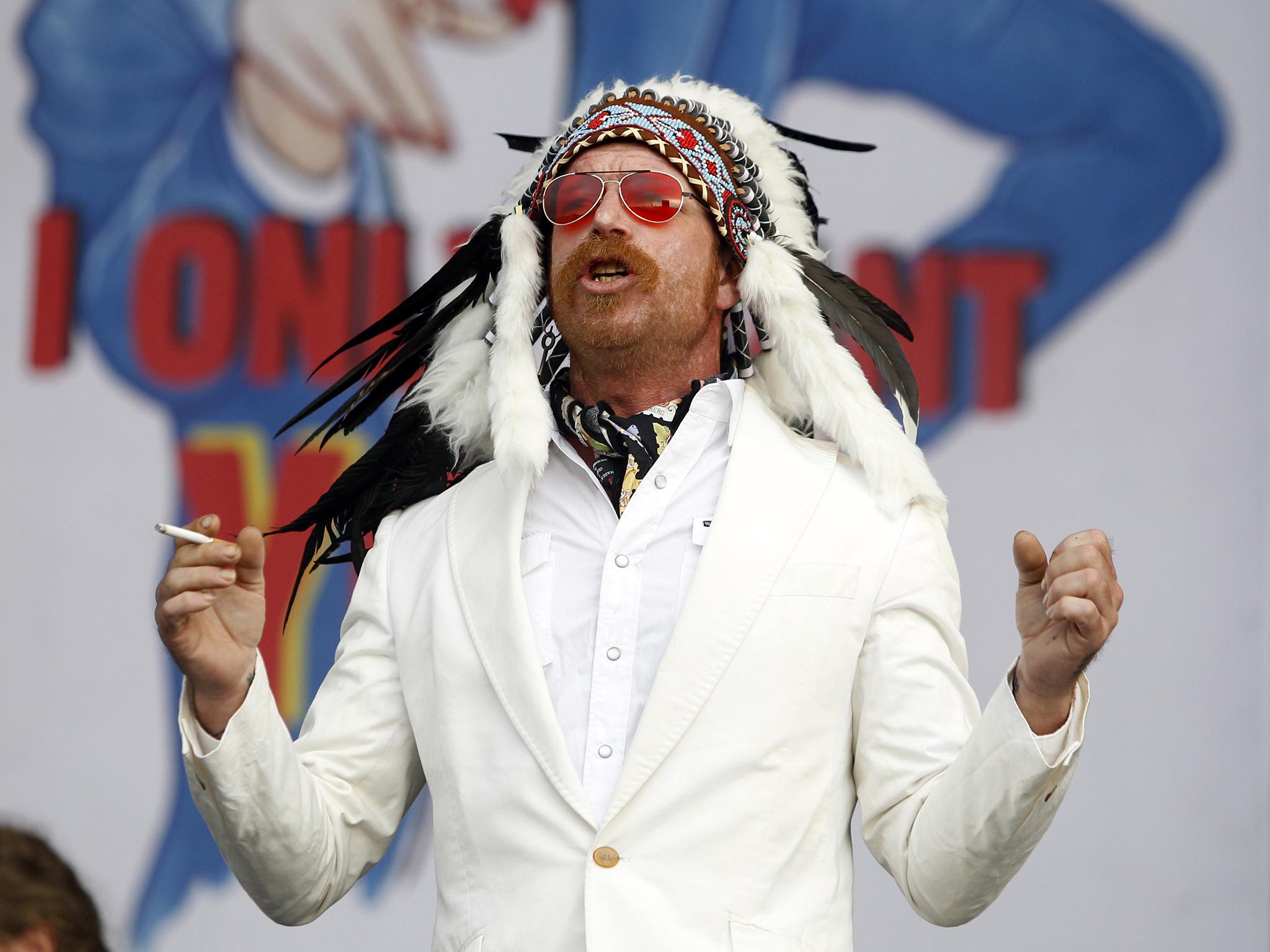
Eagles of Death Metal frontman and Bataclan attack survivor Jesse Hughes brands the March for our Lives protest in the US “pathetic” and shares an image with the caption: “Donald Trump will be your president for 7 more years”. He later deletes the posts.
June
Chrissy Teigen and John Legend make a $288,000 donation to ACLU to “Make Trump’s Birthday Great Again”, amid backlash over the Trump administration policy of separating parents and children crossing the US border from Mexico.
Bruce Springsteen condemns Trump’s border policy in a break from script during a show at New York’s Walter Kerr Theatre, branding the treatment of families “inhumane” and performing his 1995 protest song “The Ghost of Tom Joad”.
July
Selena Gomez speaks out over the US-Mexico border situation. The singer and actress, who is Mexican-American and was born in Texas, says Trump’s “zero tolerance” policy is “extremely disheartening” and that it “definitely has been affecting so many people who are close to me”.
Ahead of Trump’s visit to the UK, “American Idiot” by Green Day hits the charts, becoming the No 1 single on Amazon and also appearing on the iTunes Top 10, following a fan campaign.
Trump’s 4 July celebrations are something of a disaster. Where Obama hosted arena acts including Kendrick Lamar, Bruno Mars, Janelle Monae and The Killers, Trump manages to get two American Idol finalists, and classical pianist Lola Astanova.
The 1975 reference Trump in their new song “Love It If We Made It” by quoting his infamous comments in the lyrics: “Immigration liberal kitsch, kneeling on a pitch, ‘I moved on her like a bitch!!’” and “Excited to be indicted, unrequited, house with seven pools, ‘thank you Kanye, very cool’.”
August

Aerosmith frontman Steven Tyler orders Trump to stop using the band’s music.
Eminem attacks Trump on his surprise album Kamikaze, rapping on “The Ringer”: “[Trump] sent the Secret Service to meet in person / To see if I really think of hurtin’ him” and: “I empathise with the people this evil serpent sold the dream to that he’s deserted.”
September
Snoop Dogg launches an expletive-ridden attack on Trump and his “racist” supporters.
Paul McCartney uses a song on his new album to attack Trump. “Despite repeated warnings of dangers up ahead,” he sings on “Despite Repeated Warnings” from his 18th solo album Egypt Station, “the captain won’t be listening to what’s been said.”
October

Taylor Swift denounces Tennessee Republican candidate Marsha Blackburn and endorse two Democrats.
“I have and always will cast my vote based on which candidate will protect and fight for the human rights I believe we all deserve in this country,” she writes on Instagram.
Trump responds by claiming he likes Swift’s music “25 per cent less” after her Democrat endorsement – an unusually tame response that suggests he is very aware of the pop star’s enormous, and increasingly registered-to-vote, fanbase.
Melania Trump is offended by TI's new video, which features a lookalike of the First Lady stripping in the Oval Office.
November

Pharrell Williams sends a legal warning to Trump after he uses the song "Happy" on the day of the Pittsburgh synagogue massacre.
His lawyer notes that there was nothing “happy” about “the tragedy inflicted upon our country on Saturday” and says “no permission was granted for your [Trump's] use of this song for this purpose”.
Guns N' Roses frontman Axl Rose slams the Trump campaign, calling them “s***bags” for using the legendary rock band's music during the president's political rallies.
RIhanna also calls out Trump for using her song "Don't Stop the Music" at a rally ahead of the midterm elections. She brands the rallies "tragic" and later sends a cease and desist letter ordering him to stop using her music at political events.
2019
June
Black Sabbath frontman and solo artist Ozzy Osbourne and his wife/manager Sharon Osbourne lash out at Trump’s use of his song, “Crazy Train” in a clip posted to X/Twitter following the 2020 democratic debates, and ban him from using any of Osbourne’s music in future.
Panic! at the Disco frontman Brendon Urie also takes aim at Trump after he walked out to the band’s song “High Hopes” at a rally in Phoenix: “F*** you,” he writes on Twitter. “You’re not invited. Stop playing my song.”
The Rolling Stones threaten legal action against Trump’s campaign for using their music at his campaign rallies, as does the family of the late Tom Petty, who sent a cease-and-desist notice after one of his songs is played at a rally in Tulsa, Oklahoma.
October
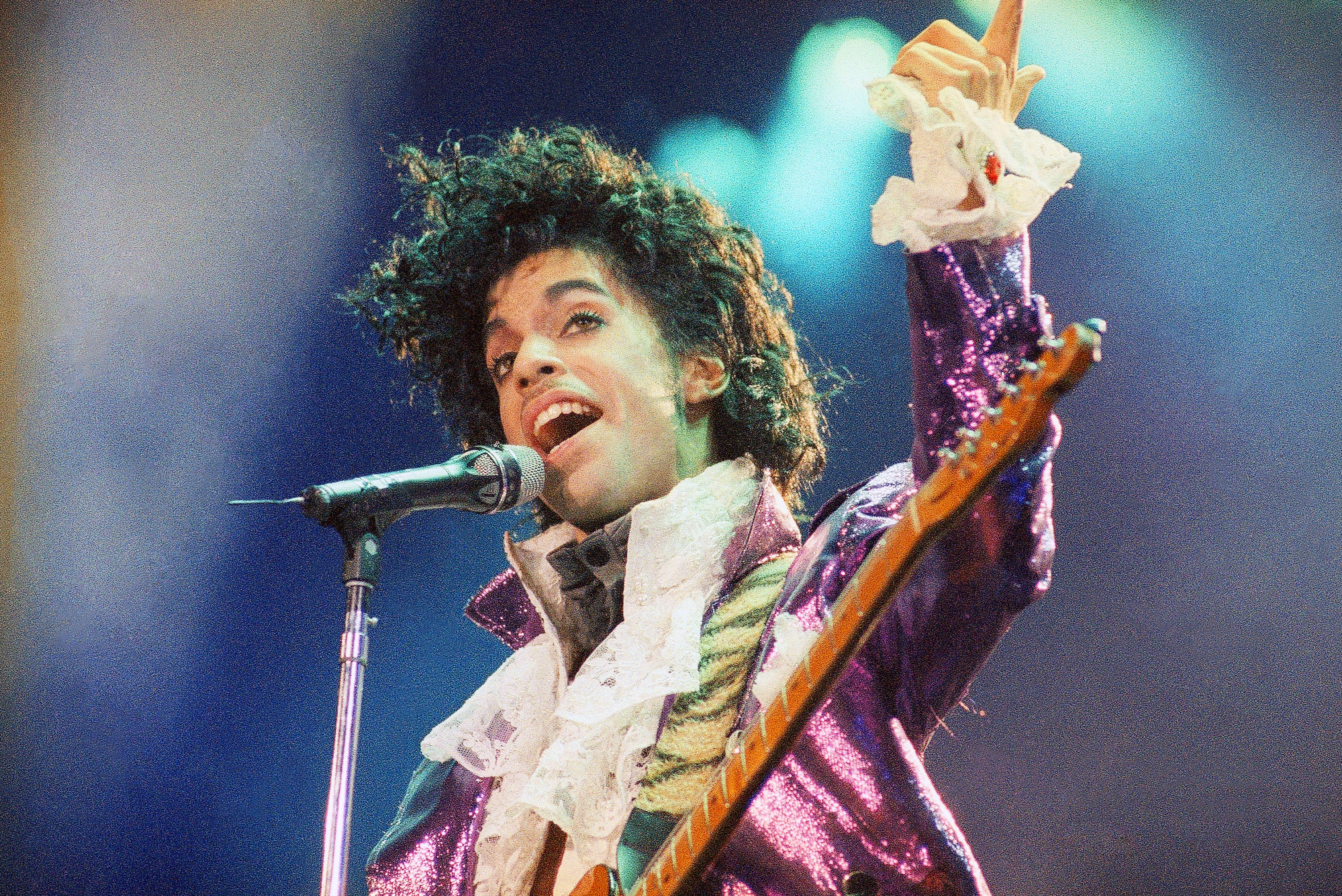
Trump uses “Purple Rain” at a rally in Minneapolis, the late singer’s hometown, in October 2019.
His estate is quick to respond: “The Prince estate will never give permission to President Trump to use Prince’s songs.”
2020
January
REM’s bassist sends an angry tweet after the band’s songs “Everybody Hurts” and “Losing My Religion” are played at one of his rallys: “We are exploring all legal avenues to prevent this, but if that’s not possible please know that we do not condone the use of our music by this fraud and con man<’ he says.
June
The Rolling Stones threaten Trump with legal action for using their songs at his rallies despite repeat cease-and-desist directives. They previously complained about him using their music to fire up his conservative fanbase during his 2016 campaign, in particular their 1969 classic “You Can’t Always Get What You Want”.
July
Linkin Park sends a cease and desist to the Trump campaign for using their song “In the End”. Neil Young also says he’s “not OK” with Trump playing his music during the White House’s Mount Rushmore event celebrating Independence Day.
October
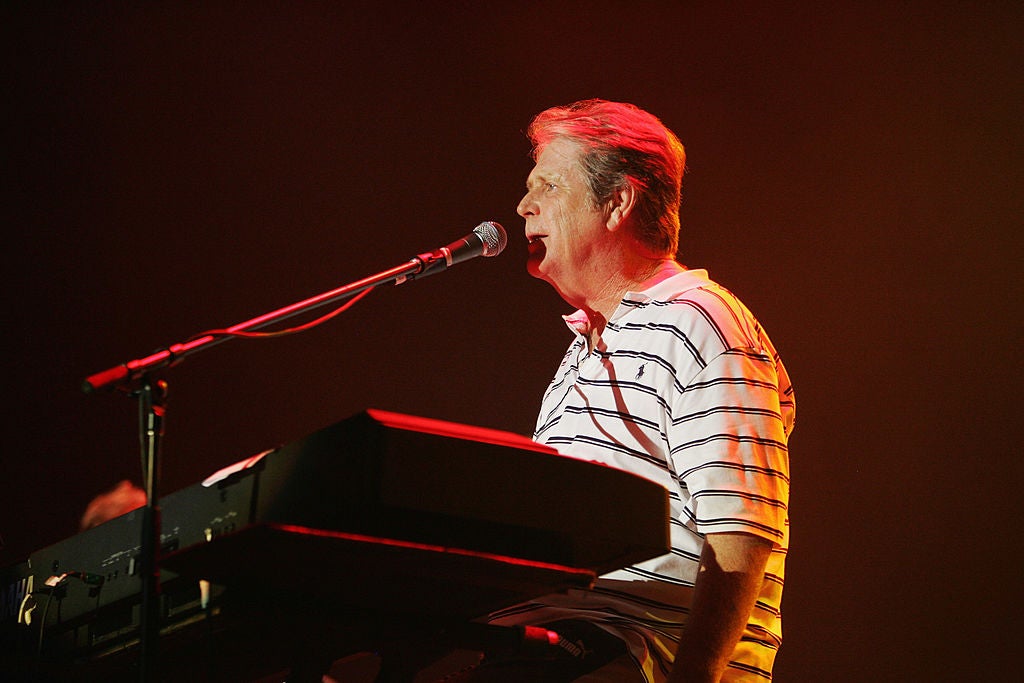
Beach Boys members Brian Wilson and Al Jardine distance themselves from a Trump fundraiser featuring the band’s lineup at the time, fronted by Mike Love.
“We have absolutely nothing to do with the Trump benefit [in] Newport Beach,” a spokesperson for the duo says. “We didn’t even know about it and were very surprised to read about it in the Los Angeles Times.”
Phil Collins hits Trump with a cease-and-desist order following his unauthorised use of “In the Air Tonight” during a rally in Iowa.
November
Trump’s camp faces legal action from the record label that represents The Village People for his continued use of their 1978 anthem “YMCA”.
2022
October
The family of Isaac Hayes hit out at Trump for using the Sam & Dave song “Hold On, I’m Comin’” at a National Rifle Association convention held months after a deadly mass shooting at Robb Elementary School in Ulvade, Texas.
“The estate and family of Isaac Hayes DID NOT approve and would NEVER approve the use of ‘Hold On, I’m Coming’ by Sam and Dave by Donald Trump at this weekend’s NRA convention,” their statement says. “Our condolences go out to the victims and families of Uvalde and mass shooting victims everywhere.”
2023
May
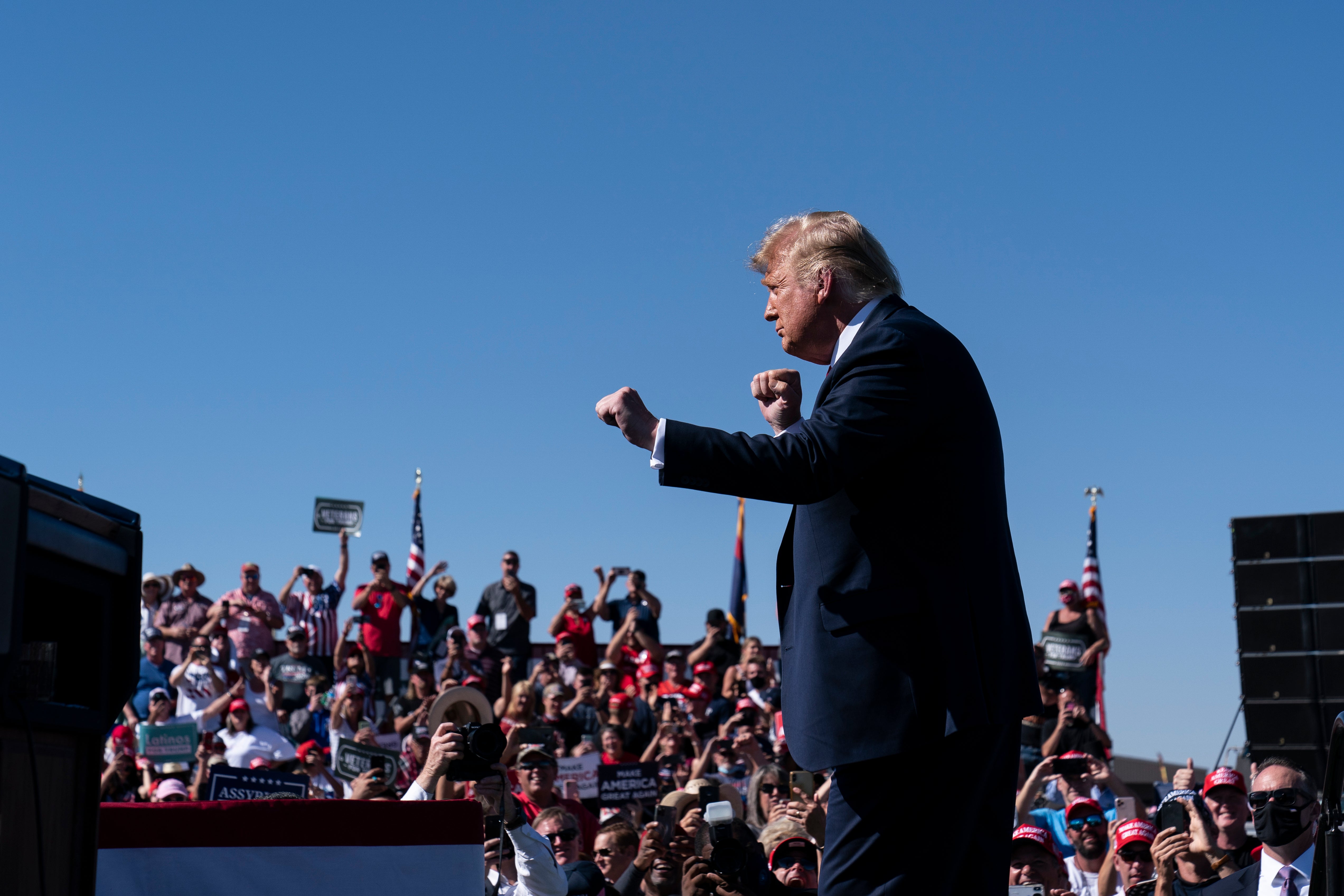
Trump receives another cease-and-desist from Village People telling him that a performance of their song “Macho Man” at his Mar-a-Lago estate by individuals dressed like the group was unauthorised and violated US trademark law.
2024
January
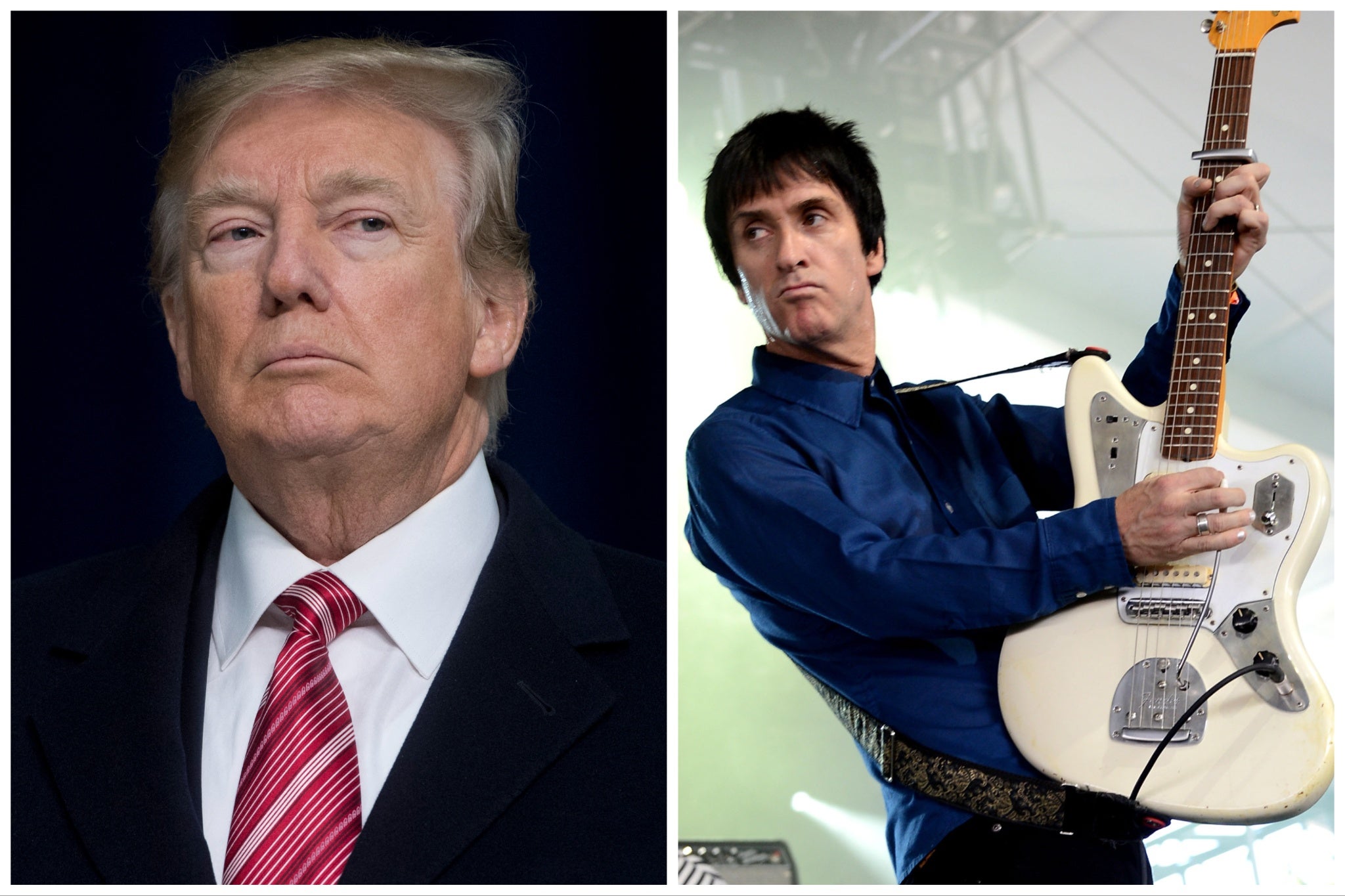
After announcing his intentions to re-run for president in 2024, Trump swiftly draws the ire of The Smiths’ guitarist Johnny Marr in January of that year after it emerges that their song “Please, Please, Please, Let Me Get What I Want” was being played as the pre-rally music for a Trump speech in Laconia, New Hampshire.
“I never in a million years would’ve thought this could come to pass,” he writes on Twitter. “Consider this s*** shut down right now.”
March
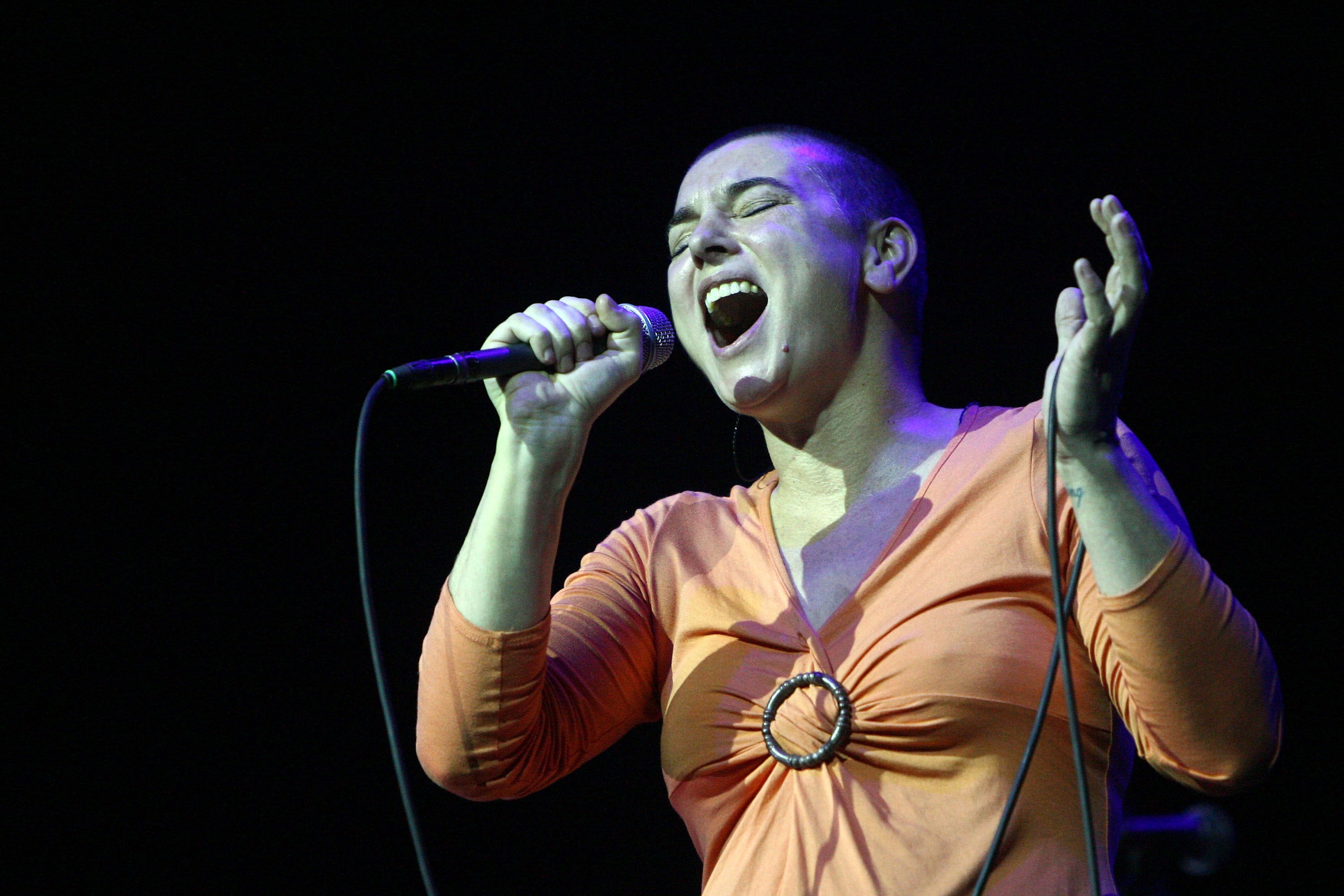
The estate of the late Irish artist Sinead O’Connor opposes Trump’s use of her cover of Prince’s “Nothing Compares 2 U” at a rally, explaining: “It is no exaggeration to say that Sinead would have been disgusted, hurt and insulted to have her work misrepresented in this way.”
July
Democratic presidential candidate Kamala Harris obtains permission from Beyonce to use her song “Freedom” as the official song for her 2024 presidential campaign.
August
Trump receives a cease-and-desist order after Republican spokesperson Steven Cheung shares a 13-second clip of the Republican candidate arriving in Detroit for a rally, with Beyonce’s “Freedom” as the theme song. Beyonce’s record label and music publisher send him a cease-and-desist the following day.
In the same month, Trump receives cease-and-desist orders from artists including Celine Dion (for playing “My Heart Will Go On”, Foo Fighters (for “My Hero”), the family of Isaac Hayes (for using “Hold On, I’m Comin’” again), Jack White (for playing “Seven Nation Army” by the White Stripes) and ABBA (for multiple songs).
Even fictional bands are forbidding Trump from using their music. Actor and comedian Harry Shearer, who starred as bassist Derek Smalls in the mockumentary Spinal Tap, tweets: “Not a band to be outdone, Spinal Tap is demanding that the Trump campaign refrain from playing ‘Sex Farm’ at their rallies.”
Taylor Swift officially endorses Harris and her running mate, Tim Walz, in a statement shared to her Instagram. The pop titan, widely acknowledged as one of the world’s most influential people, writes in part: “I’m voting for Kamala Harris because she fights for the rights and causes I believe need a warrior to champion them.”
In an apparent jab at Trump’s running mate, JD Vance, she signs off as: “Taylor Swift, Childless Cat Lady.” The accompanying picture shows her holding one of her cats, Benjamin Button.
October
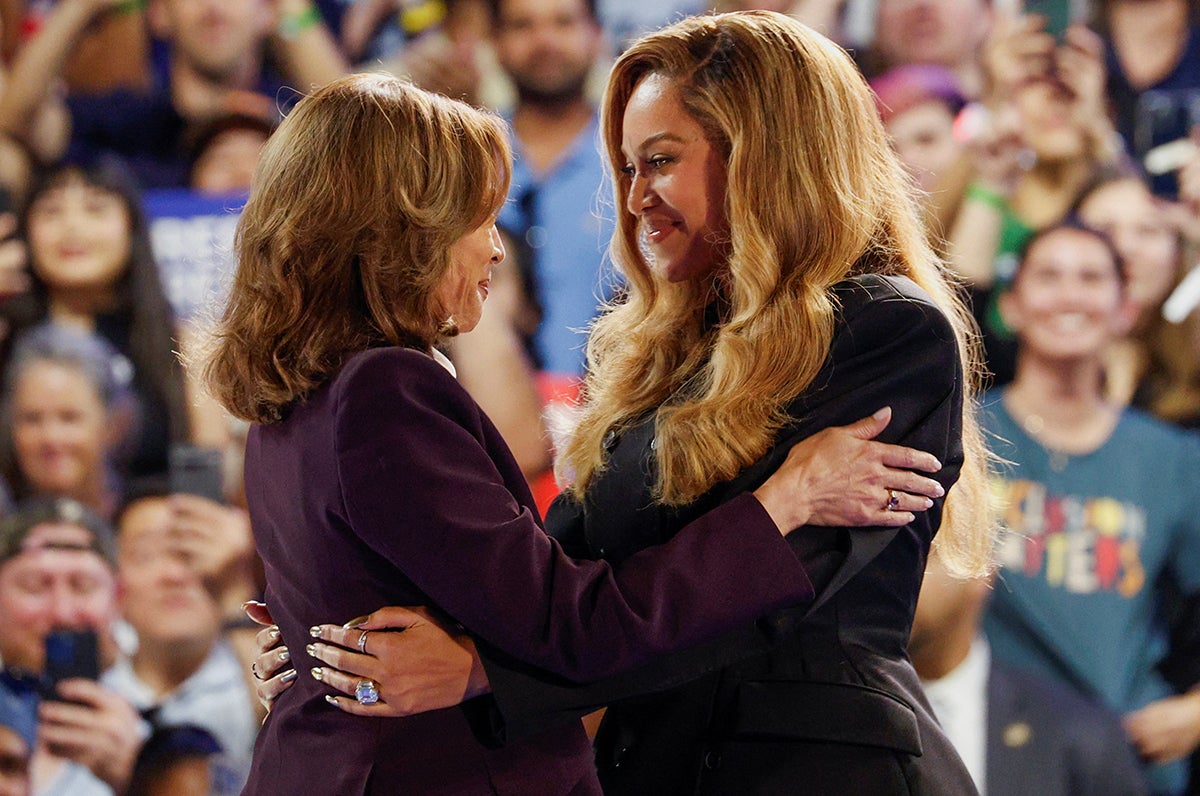
Rufus Wainwright shares an impassioned statement announcing that he does not condone the use of his cover of Leonard Cohen’s song “Hallelujah” at a Trump rally in Pennsylvania. He describes Trump’s use of the song as “the height of blasphemy”.
Eminem hits out at Trump after he insulted his hometown of Detroit, at a rally where the Grammy-winning rapper introduces former president Barack Obama. “The city of Detroit and the whole state of Michigan mean a lot to me,” he says. “Going into this election, the spotlight is on us more than ever. Use your voice.”
Taking a swipe at Trump, he adds: “People shouldn’t be afraid to express their opinions and I don’t think anyone wants an America where people are worried about retribution or what people will do if you make your opinion known.”
Beyonce endorses Harris at a Texas rally, “not as a celebrity... but as a mother.”

Join our commenting forum
Join thought-provoking conversations, follow other Independent readers and see their replies
Comments